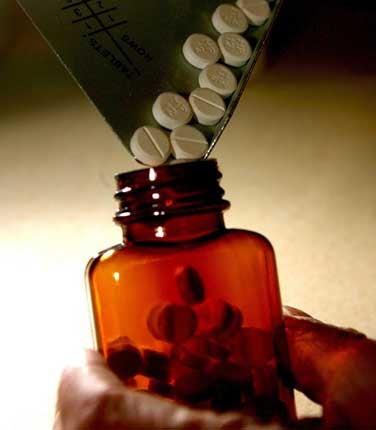The Path of Least Resistance, Radio 4, Wednesday<br/>The First 1,000 Days: A Legacy of Life, Radio 4, Tuesday<br/>Too Many Books, Radio 4, Sunday
We're all doomed – the bacteria will get us in the end

Have you ever abandoned a course of antibiotics?
Then it's your fault that we're all doomed. For Dr Stuart Flanagan, presenter of The Path of Least Resistance, the next few years will be scary. He treats STDs, and they are increasingly resistant to antibiotics. The original prescription for gonorrhoea was 72mg of penicillin; by the 1960s it was up to 3g. In the 1970s, the first resistant strains appeared, and treatment moved to other drugs. Now a strain has appeared in Japan that's untouchable. You get it for life.
The lugubrious tones of David Livermore, director of the Health Protection Agency, seemed all too fitting. We've been living in a golden age, he said, but it's coming to an end. Thanks to natural selection, aided by patients' failures to complete courses and doctors' failures to mix up drug regimes, we're moving towards a post-antibiotic era. "We will see deaths."
It is a gradual process, he conceded; if epidemics are tsunamis, this is coastal erosion. However – and it's one hell of a big "however" – there's a tsunami on the way, too. India and China house about a third of the world's population, and there things are dire. Here, for example, 10 per cent of E. coli strains are resistant to antibiotics; in India and China it's 50 to 60 per cent. Bacteria divide every 20 to 30 minutes and they mutate like crazy; they're taking over the world.
And there was more bad news. Given improved hygiene and nutrition, the post-antibiotic era might not be quite as bad as pre-penicillin days – there's lots you can do to reduce the likelihood of ill-health. But your susceptibility to disease is already determined. In the opening instalment of The First 1,000 Days – that's from conception to the second birthday, roughly – we learnt that if your development in the womb slowed at any point, you're all but done for.
We've known for a long time that low birth weight is associated with health problems later in life, but it's worse than that. Most of our organs have a small window for optimal development. Any interruption, and there will be problems. "Chronic disease is going up in leaps and bounds," heart doctor Kent Thornburg warned. "This is not a genetic change ... the environment in the womb is getting worse." And the quality of the sperm counts, too. "Everybody [must] collaborate to make a better baby."
I don't know if my mum read a lot when she was pregnant with me, but my reluctance to get rid of books borders on the pathological. Some people are even more afflicted than I am, and in Too Many Books, Sarah Cuddon met some of them as they attempted to cull their collections. Brian of Dorset had it worst. "This is masochism," he muttered. "Collins Graphic Atlas: that can go." He thought for about a quarter of a second. "No, it can't go." And Trevor from London wasn't faring much better. Cuddon expressed an interest in one of his books. "You can borrow that, but you'll have to give it back." Brian and Trevor, you are truly kindred spirits: I salute you both.
Subscribe to Independent Premium to bookmark this article
Want to bookmark your favourite articles and stories to read or reference later? Start your Independent Premium subscription today.

Join our commenting forum
Join thought-provoking conversations, follow other Independent readers and see their replies